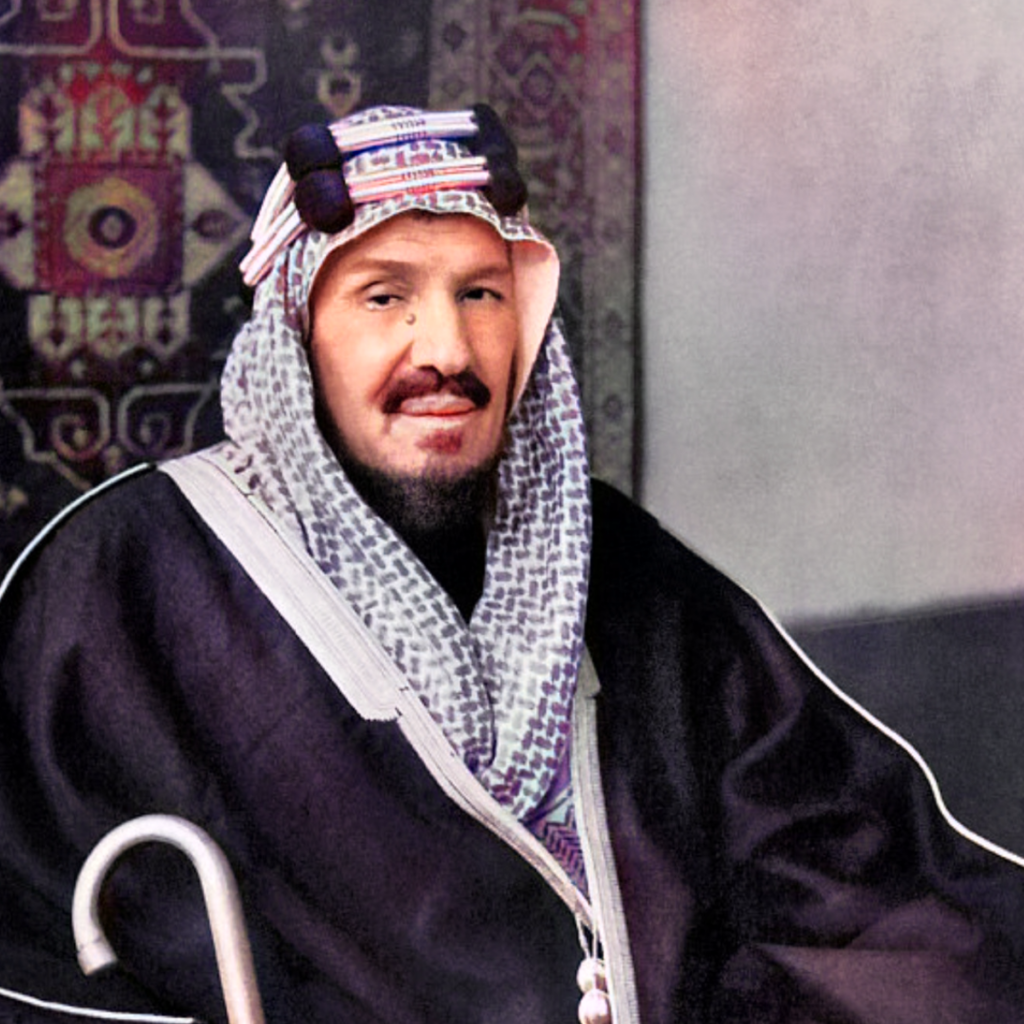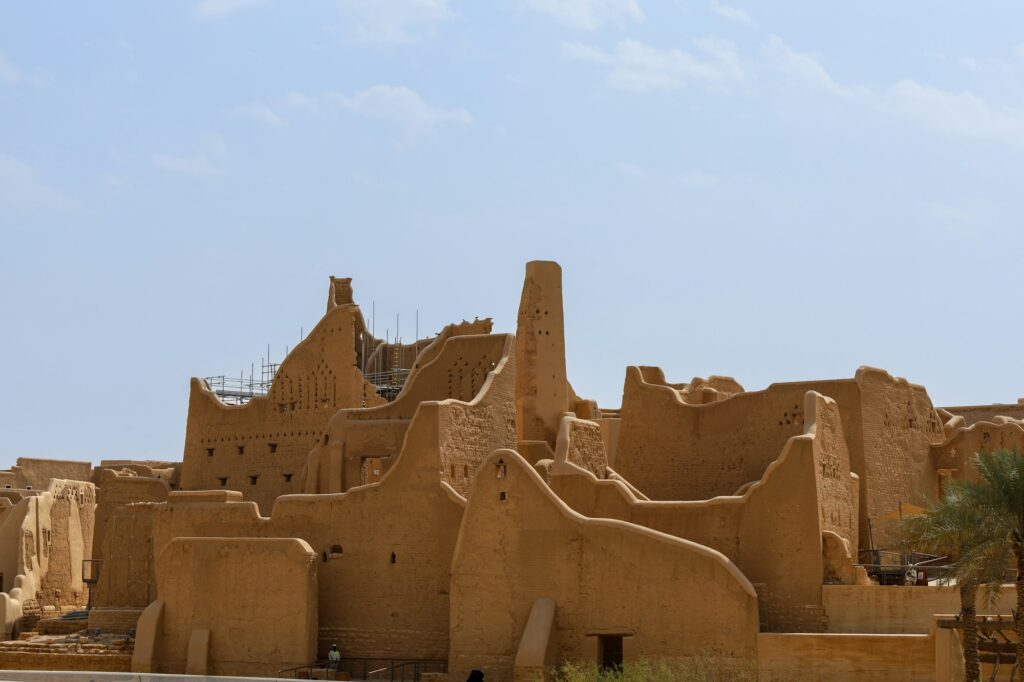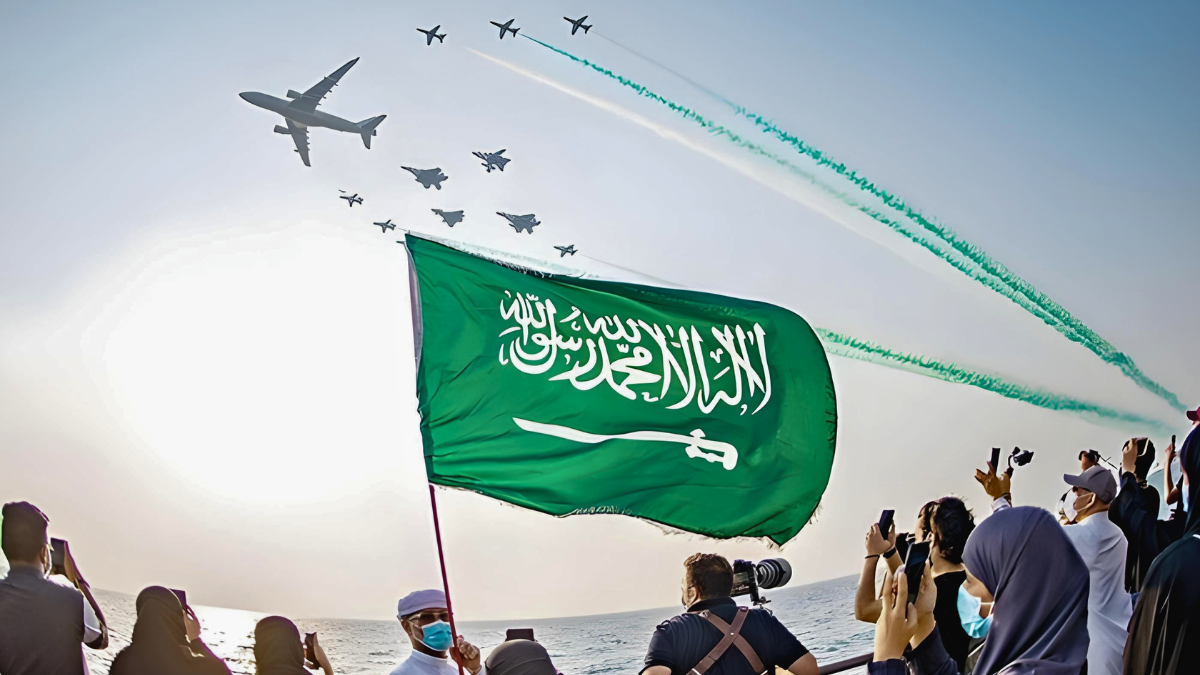As Saudi Arabia celebrates its National Day on September 23 each year, many may find themselves wondering how this day differs from the newly introduced Founding Day, observed on February 22. While both holidays commemorate significant moments in the kingdom’s history, they each have distinct meanings and origins that highlight different eras of Saudi Arabia’s development.
Saudi National Day: Celebrating the Unification of the Kingdom
Saudi National Day, celebrated every year on September 23, marks the unification of the Kingdom of Saudi Arabia in 1932 by King Abdulaziz Al Saud. After a long and determined campaign, Abdulaziz Al Saud successfully reclaimed Riyadh in 1902, setting the stage for the eventual consolidation of various regions, tribes, and territories under a unified banner.

The official proclamation of the Kingdom of Saudi Arabia occurred in 1932 after decades of military efforts, diplomacy, and negotiation. The day is a national symbol of unity, strength, and perseverance. It commemorates the culmination of efforts to unite the Arabian Peninsula under one rule, reflecting on the sacrifices of the past, the cohesion of the present, and the aspirations for the future.
Key Points about National Day:
- Date: September 23
- Historical Significance: Celebrates the unification of Saudi Arabia in 1932.
- Key Figure: King Abdulaziz Al Saud, the founding monarch of modern Saudi Arabia.
- Symbolism: Reflects national unity, cohesion, and the foundation of a modern, cohesive state.
- Celebration: Public events, fireworks, cultural displays, and national speeches.
National Day is not just a historical commemoration but also a moment of patriotism and reflection on the nation’s journey. It is an occasion where Saudis look back on the achievements of their ancestors and forward to the future.
Also see: List of Public Holidays in Saudi Arabia
Founding Day: Honoring the Origins of the Saudi State
Founding Day, a relatively new holiday, was first observed on February 22, 2022 after a royal decree by King Salman bin Abdulaziz. Unlike National Day, Founding Day commemorates the establishment of the first Saudi state in 1727 by Imam Mohammad bin Saud. This day goes beyond the modern unification to honor the early roots of Saudi leadership and culture.

Imam Mohammad bin Saud established the first Saudi state in Diriyah, a small but significant city located near Riyadh. His leadership laid the foundation for what would later become the Kingdom of Saudi Arabia. At that time, the region faced economic challenges, tribal conflicts, and political fragmentation. Despite these harsh conditions, the state that Mohammad bin Saud founded grew to become a powerful regional entity, driven by a vision of stability, economic reform, and religious governance.

Key Points about Founding Day:
- Date: February 22
- Historical Significance: Commemorates the founding of the first Saudi state in 1727 by Imam Mohammad bin Saud.
- Key Figure: Imam Mohammad bin Saud, the founder of the first Saudi state.
- Symbolism: Reflects the rich cultural heritage, enduring legacy, and resilience of the Saudi state that dates back more than two centuries.
- Celebration: Traditional ceremonies, historical re-enactments, and cultural exhibits that honor the kingdom’s deep-rooted history.
Founding Day emphasizes Saudi Arabia’s historical depth, highlighting the early leadership and the state’s ability to navigate economic instability and social unrest. It is a day to reflect on the centuries of Saudi resilience and culture that predate the establishment of the modern kingdom.
Key Differences Between National Day and Founding Day
While National Day celebrates the unification of Saudi Arabia in the 20th century, Founding Day takes the kingdom even further back in time, recognizing the establishment of the first Saudi state nearly two centuries earlier. Each day celebrates the different layers of Saudi Arabia’s history:
| Aspect | National Day | Founding Day |
|---|---|---|
| Date | September 23 | February 22 |
| Historical Event | Unification of Saudi Arabia in 1932 | Establishment of the first Saudi state in 1727 |
| Key Figure | King Abdulaziz Al Saud | Imam Mohammad bin Saud |
| Symbolism | National unity, modern statehood | Early heritage, cultural roots, resilience |
| Celebration Focus | Unity of the kingdom | Founding of the state amid adversity |
Both National Day and Founding Day represent milestones in Saudi Arabia’s history, though their significance lies in different eras of the kingdom’s evolution.
The Strategic and Cultural Impact of Saudi Arabia’s Celebrations
Saudi Arabia’s position as a key player in regional politics and economics is rooted in its rich history, symbolized by both National Day and Founding Day. The kingdom’s strategic geographic location has made it a central figure in the Gulf Cooperation Council (GCC) and other international alliances.
By celebrating both days, Saudi Arabia underscores not only its historical depth but also its vision for the future. Founding Day reminds citizens of their deep-rooted history and the state’s ability to withstand and thrive amid challenges, while National Day is a testament to the success of the modern nation-state, underlined by economic growth, global diplomacy, and national unity.
These holidays bring Saudis together to reflect on the unique journey their nation has undergone, fostering a sense of patriotism and appreciation for their rich cultural heritage.
Conclusion
In essence, while Saudi National Day celebrates the unification of Saudi Arabia in 1932 under King Abdulaziz, Founding Day commemorates the early beginnings of the Saudi state in 1727 under Imam Mohammad bin Saud. Each day is significant in its own right, with National Day focusing on the modern state’s unity and cohesion, and Founding Day honoring the historical foundations that shaped the kingdom’s cultural and political heritage.
Both holidays serve to strengthen national pride, offering Saudis an opportunity to reflect on their shared history, and providing a sense of identity that is deeply rooted in centuries of resilience, leadership, and cultural development.
